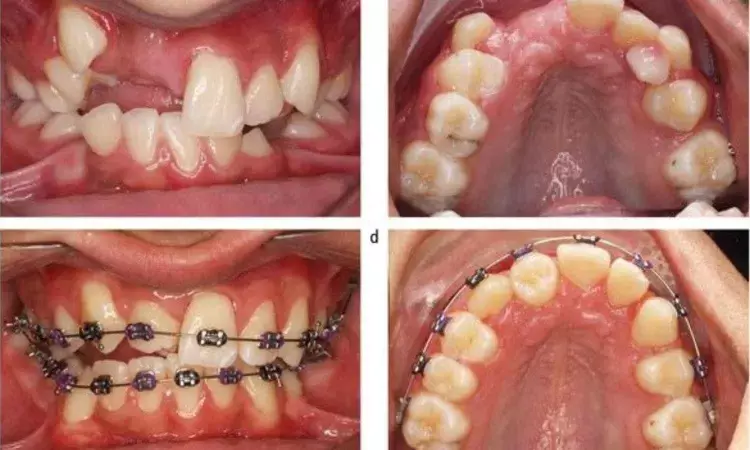- Home
- Medical news & Guidelines
- Anesthesiology
- Cardiology and CTVS
- Critical Care
- Dentistry
- Dermatology
- Diabetes and Endocrinology
- ENT
- Gastroenterology
- Medicine
- Nephrology
- Neurology
- Obstretics-Gynaecology
- Oncology
- Ophthalmology
- Orthopaedics
- Pediatrics-Neonatology
- Psychiatry
- Pulmonology
- Radiology
- Surgery
- Urology
- Laboratory Medicine
- Diet
- Nursing
- Paramedical
- Physiotherapy
- Health news
- Fact Check
- Bone Health Fact Check
- Brain Health Fact Check
- Cancer Related Fact Check
- Child Care Fact Check
- Dental and oral health fact check
- Diabetes and metabolic health fact check
- Diet and Nutrition Fact Check
- Eye and ENT Care Fact Check
- Fitness fact check
- Gut health fact check
- Heart health fact check
- Kidney health fact check
- Medical education fact check
- Men's health fact check
- Respiratory fact check
- Skin and hair care fact check
- Vaccine and Immunization fact check
- Women's health fact check
- AYUSH
- State News
- Andaman and Nicobar Islands
- Andhra Pradesh
- Arunachal Pradesh
- Assam
- Bihar
- Chandigarh
- Chattisgarh
- Dadra and Nagar Haveli
- Daman and Diu
- Delhi
- Goa
- Gujarat
- Haryana
- Himachal Pradesh
- Jammu & Kashmir
- Jharkhand
- Karnataka
- Kerala
- Ladakh
- Lakshadweep
- Madhya Pradesh
- Maharashtra
- Manipur
- Meghalaya
- Mizoram
- Nagaland
- Odisha
- Puducherry
- Punjab
- Rajasthan
- Sikkim
- Tamil Nadu
- Telangana
- Tripura
- Uttar Pradesh
- Uttrakhand
- West Bengal
- Medical Education
- Industry
Autotransplantation of third molars with fully formed roots promising solution for replacing missing teeth, finds study

A study published in the Journal of the American Dental Association suggests that autotransplantation of third molars with fully formed roots is a promising solution for replacing missing teeth.
The autotransplant of third molars to replace missing teeth is gaining attention. This study aimed to analyze factors influencing the success, survival, and inflammatory root resorption (IRR) of autotransplanted third molars with completely formed roots.
A total of 160 patients who underwent autotransplant of third molars with completely formed roots were evaluated retrospectively, involving 168 teeth. Preoperative, intraoperative, and postoperative variables were assessed to identify prognostic factors for success, survival, and IRR. Results: The average (SD) follow-up was 5.21 (1.99) years.
The success, survival, and IRR rates were 75.0%, 91.1%, and 17.3%, respectively. Cox proportional hazards regression analysis revealed that both apical resection and retrofilling (ARR) (P < .001) and donor tooth replicas (P < .001 for success and IRR; P = .013 for survival) were associated significantly with success, survival, and IRR. Furthermore, root canal treatment timing and patient age significantly affected success and survival, respectively (P = .006 and P = .036).
The use of donor tooth replicas significantly reduced both the surgical time (P < .001) and extraoral time of the donor tooth (P < .001), whereas ARR increased the extraoral time of the donor tooth (P = .002). The use of a single root donor tooth was associated with a reduced surgical time (P = .003). Using donor tooth replicas and avoiding ARR contributed to increased success and survival rates and prevented IRR. Third molars with completely formed roots are suitable donors for replacing missing teeth, provided that appropriate preoperative, intraoperative, and postoperative indications are considered.
Reference:
Xia J, Ge Z, Zhang Y, Shi J, Xie Z. Prognostic factors for autotransplanted third molars with completely formed roots: A retrospective cohort study. J Am Dent Assoc. 2024 Nov 23:S0002-8177(24)00588-9. doi: 10.1016/j.adaj.2024.10.004. Epub ahead of print. PMID: 39580736.
Dr. Shravani Dali has completed her BDS from Pravara institute of medical sciences, loni. Following which she extensively worked in the healthcare sector for 2+ years. She has been actively involved in writing blogs in field of health and wellness. Currently she is pursuing her Masters of public health-health administration from Tata institute of social sciences. She can be contacted at editorial@medicaldialogues.in.
Dr Kamal Kant Kohli-MBBS, DTCD- a chest specialist with more than 30 years of practice and a flair for writing clinical articles, Dr Kamal Kant Kohli joined Medical Dialogues as a Chief Editor of Medical News. Besides writing articles, as an editor, he proofreads and verifies all the medical content published on Medical Dialogues including those coming from journals, studies,medical conferences,guidelines etc. Email: drkohli@medicaldialogues.in. Contact no. 011-43720751


